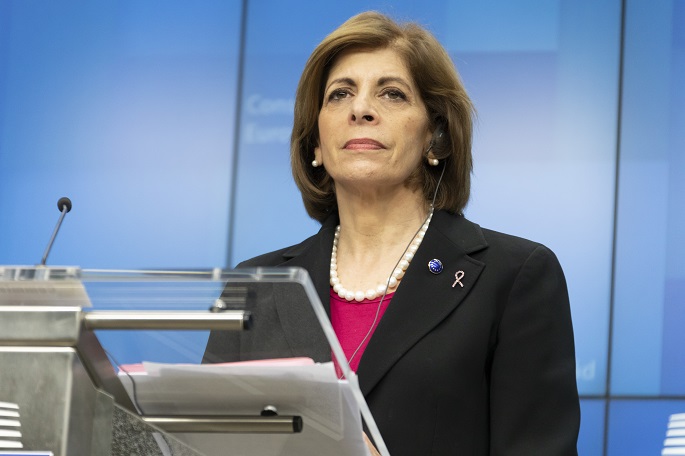EU to enhance coordination in battling COVID-19
Published : 07 Mar 2020, 04:39
Updated : 07 Mar 2020, 04:40
Health ministers of the European Union (EU) member states met here on Friday, calling for strengthened solidarity, cooperation and exchange of information in tackling the spread of the disease.
The ministers agreed on further raising public awareness about the threat posed by COVID-19, developing a coordinated approach to prevention and protection of people at risk, and establishing coherent containment measures, including evidence-based advice concerning travel to and from risk areas.
"The EU's response to the outbreak and the cooperation between all parties have been very good, but the situation has changed," explained Croatian Health Minister Vili Beros, who chaired the meeting.
"Our debate today showed that member states are ready to adapt their response, strengthen their cooperation and undertake the appropriate measures to focus both on prevention and treatment," he added.
The officials also highlighted the need for monitoring at European level of the availability of medical equipment and medicines to secure the production, stocking, availability and rational use of protective equipment.
"The important principle here is that of partnership," said Stella Kyriakides, European Commissioner for Health and Food Safety on Twitter.
She urged EU member states to continue cooperation and share information in an open and transparent way, as well as to reinforce communication to citizens on the importance of personal hygiene.
Also on Friday, the European Commission announced to increase the research funding with an additional 37.5 million euros (42.3 million U.S. dollars), following an earlier allocation of 10 million euros in January.
The funding will finance 17 projects involving 136 research teams from across the EU. The researchers are now working on development of vaccines, new treatments, diagnostic tests and medical systems.


